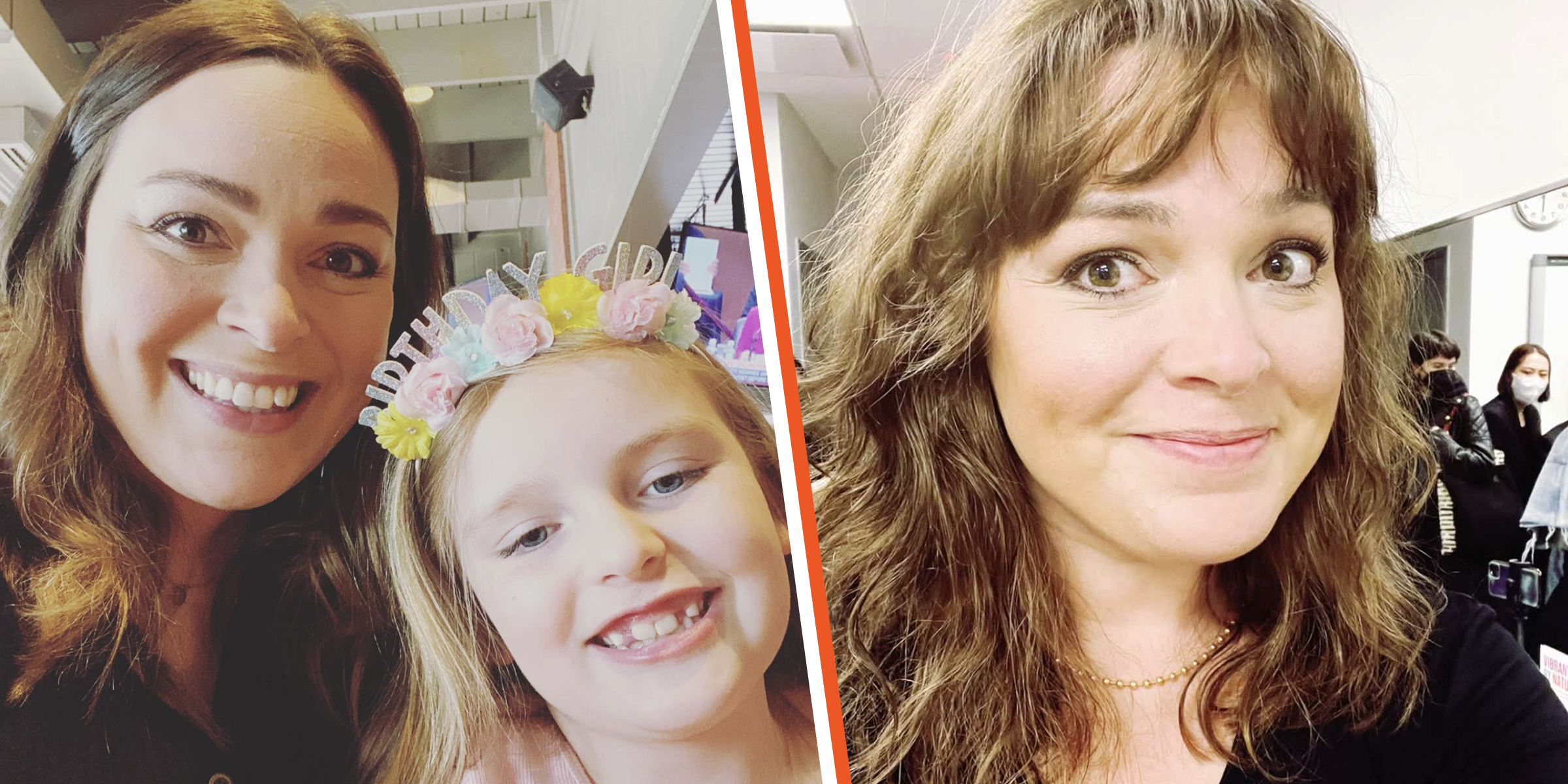
'I Was an Emotional Eater': 38-Year-Old Mother of Two Shared What Really Happened in Her Life After Taking Ozempic
Ozempic is widely prescribed to help adults with type 2 diabetes manage blood sugar and curb appetite, but it's also gaining off-label popularity as a weight loss aid. For one woman, however, the impact went far beyond the physical, deeply affecting her mental and emotional well-being as well.
At 38, Melissa Floro found herself stuck in a cycle of emotional eating, self-judgment, and physical exhaustion. A mother of two living in New York City, she struggled to lose weight despite countless attempts with diet and exercise. The turning point came when she was introduced to Ozempic.
What followed wasn't just a number change on the scale, but a complete reworking of her relationship with food, her body, and how she showed up in her daily life. Her story reflects a growing conversation around GLP-1 medications and the deeply personal realities behind their rising popularity.
When Food Becomes a Coping Mechanism
Emotional eating isn't just about a lack of willpower. It's often a deeply ingrained response to stress, boredom, or emotional pain. According to the Mayo Clinic, it's a common way people try to soothe difficult emotions, but it can quickly sabotage weight-loss efforts.
Instead of hunger, it's emotion that drives the urge to eat, often leading to the overconsumption of sweet, fatty, or high-calorie foods. And while it may offer brief comfort, the pattern tends to create a frustrating cycle: the feelings return.
It often disrupts weight-loss efforts and creates a damaging cycle of guilt and further emotional eating. For Floro, that cycle became familiar after becoming a mother. "After I had my kids, I really started seeing like a metabolic change in my body," she recalled.
As the weight slowly crept on, the emotional toll followed. Her changing body brought changes in habits. She began using food to deal with stress and mental fatigue, a habit that became increasingly hard to break. "I was addicted to food. I was an emotional eater," Floro revealed.
What began as occasional comfort eating gradually shaped her daily life. Instead of finding relief, she felt stuck — physically drained, emotionally low, and increasingly disconnected from the life she once enjoyed.
Floro tried to take control. She followed diets, tracked calories, and exercised, doing everything she thought she was supposed to. Still, the results were minimal. The most weight she ever managed to lose was 20 pounds.
But the pounds always returned, and with them came chronic back and knee pain, fatigue, and the harsh inner critic that reminded her she was failing.
Ashamed, Exhausted, and Hiding from the World
By spring 2024, Floro had started avoiding everyday activities that once brought her joy. Living in New York City with her husband and two kids, she chose to stay home rather than face the frustration of getting dressed. Nothing fit comfortably. Even simple trips to the park felt overwhelming.
"I hermited [sic] myself for so long because I was ashamed of how big I was," she shared. At the time, her children were 10 and 12, old enough to ask for park outings and active play. But each request filled her with anxiety and guilt. She wanted to say yes, but couldn't bring herself to leave the apartment.
"I felt like everybody was looking at me," she said. "I missed out on so much." What weighed on her wasn't just physical discomfort. It was the constant feeling of being judged, of believing that others saw her size as a reflection of her worth. In her role as a health care administrator, Floro had always prioritized others before herself.
Her focus was on her children's needs, even when her health was suffering. She described the "worst part" of that period as mental, not physical. Years of emotional eating, physical discomfort, and social withdrawal had slowly reshaped how she saw herself and how she moved through the world. But in May 2024, everything began to shift.
A Shot That Changed Her Life
By Memorial Day weekend of 2024, Floro weighed 228 pounds. That's when she began taking weekly Ozempic injections through Lenox Hill Hospital in New York City. The medication, originally approved to help adults with type 2 diabetes manage blood sugar, was now being prescribed off-label to support weight loss.
For Floro, it marked the beginning of a dramatic physical and mental transformation. "I've lost 70 pounds over about six months," she said months later. "It's just been completely life-altering." Though she had hoped to lose weight, she hadn't expected how quickly her mindset around food would begin to shift.
Cravings that once felt impossible to resist faded into the background. "Something in this medication changed the way that my brain thought about and desired food," she shared.
Unlike her past experiences with dieting, this change didn't feel like a daily battle. Ozempic helped her break patterns she had struggled with for years, tied not just to hunger, but to emotion. As her emotional eating faded, many things in her life began to change, too.
A New Routine, a Healthier Body, and an Unexpected Benefit
As the pounds came off, Floro began noticing changes that went beyond what the scale could measure. Her chronic back and knee pain, which had once made everyday movement difficult, began to subside.
Simple tasks like walking to school with her kids or taking the stairs became part of her routine, not because she forced herself, but because her body finally allowed it. "I love being able to feel my body move the way it should," she said.
With more energy, Floro became more active, not at the gym, but in the rhythms of daily life. She cleaned the house, walked as much as possible, and reconnected with parts of herself that had felt dormant for years. Alongside those changes came an unexpected shift: her relationship with alcohol.
For years, winding down on Fridays meant two or three margaritas, a habit she used to manage stress. That urge faded. "I really don't drink much anymore," she revealed. The shift wasn't forced. It just happened, quietly, alongside everything else.
Floro also learned how to manage side effects from the medication, including mild nausea and constipation. Drinking more water and eating fiber-rich foods helped keep them under control. She became more intentional about getting enough protein and daily nutrients, not as part of a restrictive diet, but as a way to support her body's needs.
She no longer avoids date nights or takes the elevator by default. The emotional weight she carried — the shame, the hesitation — has lifted enough for her to re-engage with her surroundings, her family, and herself.
Floro's husband has also started using a GLP-1 medication, and together, they're building routines that support long-term health. Although she doesn't plan to use Ozempic long term, she remains open to it if needed. "If giving myself a shot means I stay healthy and present for my family and my kids, that would be a very small sacrifice to make," she said.
The Drug Behind the Shift: What Ozempic Is and What It's For
Ozempic, also known by its generic name semaglutide, is an injectable prescription medication classified as a GLP-1 receptor agonist. It was originally approved by the FDA to help adults with type 2 diabetes manage their blood sugar levels in combination with diet and exercise.
According to the manufacturer, it also reduces the risk of major cardiovascular events like heart attack, stroke, or death in adults with type 2 diabetes and known heart disease. Though not officially approved for weight loss, Ozempic has increasingly been prescribed off-label for that purpose, especially in cases where patients have struggled with obesity-related health issues.
The drug works by mimicking a hormone that targets areas of the brain involved in appetite regulation. In effect, it slows digestion, helps the body produce insulin more efficiently, and reduces food cravings. Floro's experience aligns with many of these reported effects.
She described how the medication changed her relationship with food at a neurological level, cutting through the mental noise that once drove her to eat impulsively. "It was just boom, done. Those thoughts were gone," she said.
A Life Reclaimed, One Step at a Time
Floro's journey wasn't just about weight. It was about reclaiming the parts of her life that had quietly slipped away. From avoiding social situations and coping with chronic pain to walking freely alongside her kids, every step forward has been personal and hard-won.
She credits Ozempic with helping her break free from the cycle of emotional eating, but the results go deeper than any prescription. She now moves through the world with energy, confidence, and clarity. Her routines are manageable, her mindset has shifted, and her relationship with food no longer controls her.
Most importantly, she no longer feels like a bystander in her own life. "I don't want to waste any more time being stagnant," she shared. And now, she doesn't have to.
Floro's journey is deeply personal, and while Ozempic transformed her life, others may have different experiences. As with any medication, results may vary from person to person. You should consult a medical professional to determine what is best for you.
The information in this article is not intended or implied to be a substitute for professional medical advice, diagnosis or treatment. All content, including text, and images contained on news.AmoMama.com, or available through news.AmoMama.com is for general information purposes only. news.AmoMama.com does not take responsibility for any action taken as a result of reading this article. Before undertaking any course of treatment please consult with your healthcare provider.
